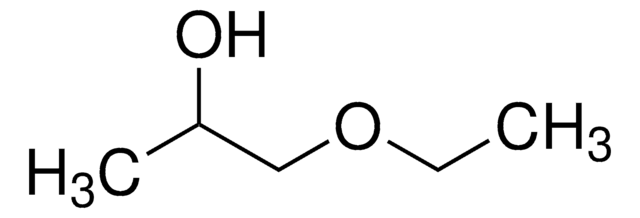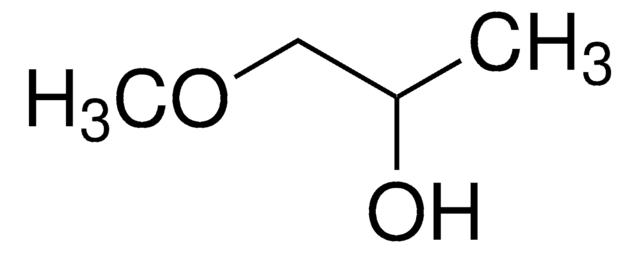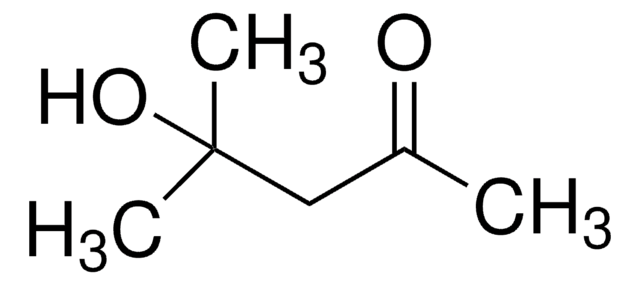484407
1-Methoxy-2-propanol
≥99.5%
Synonym(s):
Propylene glycol methyl ether, Propyleneglycol monomethyl ether
About This Item
Recommended Products
vapor density
3.12 (vs air)
Quality Level
vapor pressure
10.9 mmHg ( 25 °C)
product line
ReagentPlus®
Assay
≥99.5%
form
liquid
autoignition temp.
532 °F
expl. lim.
13.8 %
greener alternative product characteristics
Safer Solvents and Auxiliaries
Learn more about the Principles of Green Chemistry.
sustainability
Greener Alternative Product
impurities
≤0.001% water
refractive index
n20/D 1.403 (lit.)
bp
118-119 °C (lit.)
mp
-97 °C
solubility
water: miscible
density
0.916 g/mL at 25 °C (lit.)
application(s)
microbiology
greener alternative category
, Aligned
SMILES string
CC(O)COC
InChI
1S/C4H10O2/c1-4(5)3-6-2/h4-5H,3H2,1-2H3
InChI key
ARXJGSRGQADJSQ-UHFFFAOYSA-N
Looking for similar products? Visit Product Comparison Guide
General description
Legal Information
Signal Word
Warning
Hazard Statements
Precautionary Statements
Hazard Classifications
Flam. Liq. 3 - STOT SE 3
Target Organs
Central nervous system
Storage Class Code
3 - Flammable liquids
WGK
WGK 1
Flash Point(F)
88.7 °F - closed cup - (External MSDS)
Flash Point(C)
31.5 °C - closed cup - (External MSDS)
Personal Protective Equipment
Choose from one of the most recent versions:
Already Own This Product?
Find documentation for the products that you have recently purchased in the Document Library.
Customers Also Viewed
Our team of scientists has experience in all areas of research including Life Science, Material Science, Chemical Synthesis, Chromatography, Analytical and many others.
Contact Technical Service










